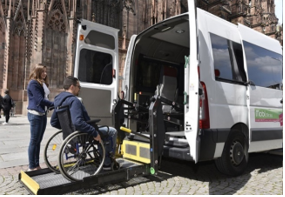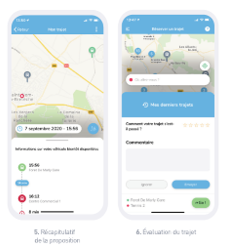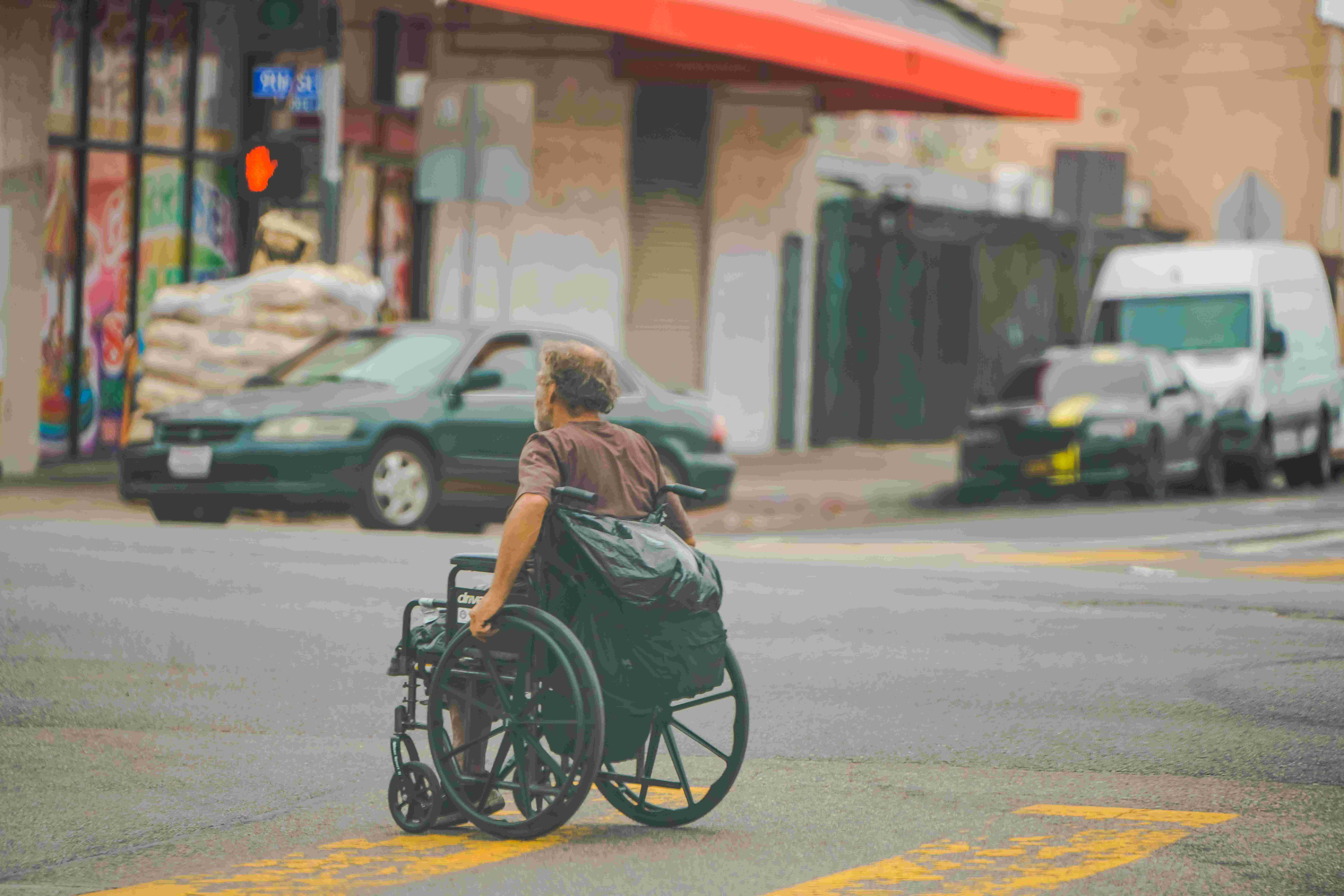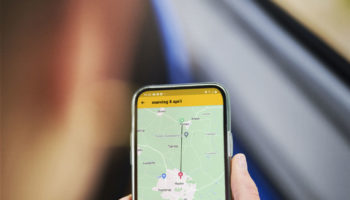The issue of accessing paratransit service for People with Reduced Mobility (PRM) remains central. Long waits, accessibility and booking issues: more than 75% of users say they are unsatisfied, according to a recent survey made by Padam Mobility. Yet solutions do exist, such as Demand-Responsive Transport, which focuses on users rather than schedules.
Paratransit: why are users unsatisfied?
The accessibility of transportation service for people with disabilities or reduced mobility was one of the main concerns of the French Mobility Act (LOM) in December 2019, which will celebrate its first anniversary on December 24. Notable steps forward include the abolition of the residency criteria and the requirement to go before a local medical commission to access a paratransit service. In other words, the service is offered to everyone, not only to residents of a municipality but also to tourists and visitors passing through.
A progress that doesn’t seem enough, as shown by the latest survey made by Padam Mobility in October 2020. The survey shows that 75% of paratransit users are unsatisfied with the current state of transportation services.

While people with reduced mobility represent nearly 12 million people in France, they should not be left out of the loop when it comes to technological advances in means of transportation. Equal access to transportation for all is at stake.
Complaints include dependency on specific service schedules (60% of respondents), long waiting times (pick-up time too far ahead), booking issues (failure to take into account the additional or specific pick-up time required due to disability) and finally the lack of safety and comfort, sometimes requiring the assistance of a companion. The increased autonomy and independence sought by passengers can only be achieved through greater flexibility in mobility services.
“Transportation services for people with reduced mobility are rigid and restrictive. They prohibit any spontaneity” emphasises a paratransit user.
However, there is a more suitable mobility solution: Demand-Responsive Transport. While this type of service for PRMs is already available in the majority of municipalities in France, smart and dynamic DRT goes further, thanks to its hyper-adaptability and real-time responsiveness. It responds to the mobility and the digitalisation of transportation services challenges for People with Reduced Mobility.
Demand-Responsive Transport: a transportation solution for users with reduced mobility
 Demand-Responsive Transport (DRT), instead of offering rigid schedules, focuses on users and their mobility needs. While more than 70% of People with Reduced Mobility live in suburban areas, DRT offers a door-to-door service with adapted vehicles.
Demand-Responsive Transport (DRT), instead of offering rigid schedules, focuses on users and their mobility needs. While more than 70% of People with Reduced Mobility live in suburban areas, DRT offers a door-to-door service with adapted vehicles.
Booking options allow a customised care: the user chooses the number of space for a specific equipment (e.g. wheelchair) and can even delegate the action to a third party, such as a caregiver for example.
Operating only under reservation, the app optimises the passenger’s travel time, but also facilitates the drivers’ work and the interpretation of data for transit operators:
- Users can book their ride in real time or in advance via the application, the website or the call centre.
- They get a notification on their smartphone 30 minutes prior their pick-up to remind them practical information (stop location, time of arrival of the vehicle, characteristics of the vehicle) and allow them to view the vehicle’s position in real time.
- Drivers have access to their itinerary which is constantly optimised according to the passengers’ bookings.
- Transit operators have access to all the statistics and data of their territory.
“Serving People with Reduced Mobility was one of our priorities for 2020. We are delighted to have achieved this objective. We have taken other major steps this year: becoming the leader in Demand-Responsive Transport in France, deploying the world’s most extensive DRT in the Paris region, and surpassing the objective of 50 territories deployed. Our expectations for 2021 are, of course, very high.” explains Grégoire Bonnat, CEO of Padam Mobility.
The DRT thus helps communities to address the accessibility challenges of their transportation services. Padam Mobility has already equipped paratransit services with its software in Brittany (BreizhGo), Pays-de-la-Loire (Aléop), Pays de Saint-Omer (Mouvéo), Limoges (RRTHV), Châlons-en-Champagne (Sitac), Pays-du-Mont-Blanc (Montenbus) and the Landes department (Oé on demand).
This article may interest you: Survey: what your paratrasit users really need
Find out more about Padam Mobility’s Paratransit offer here.






